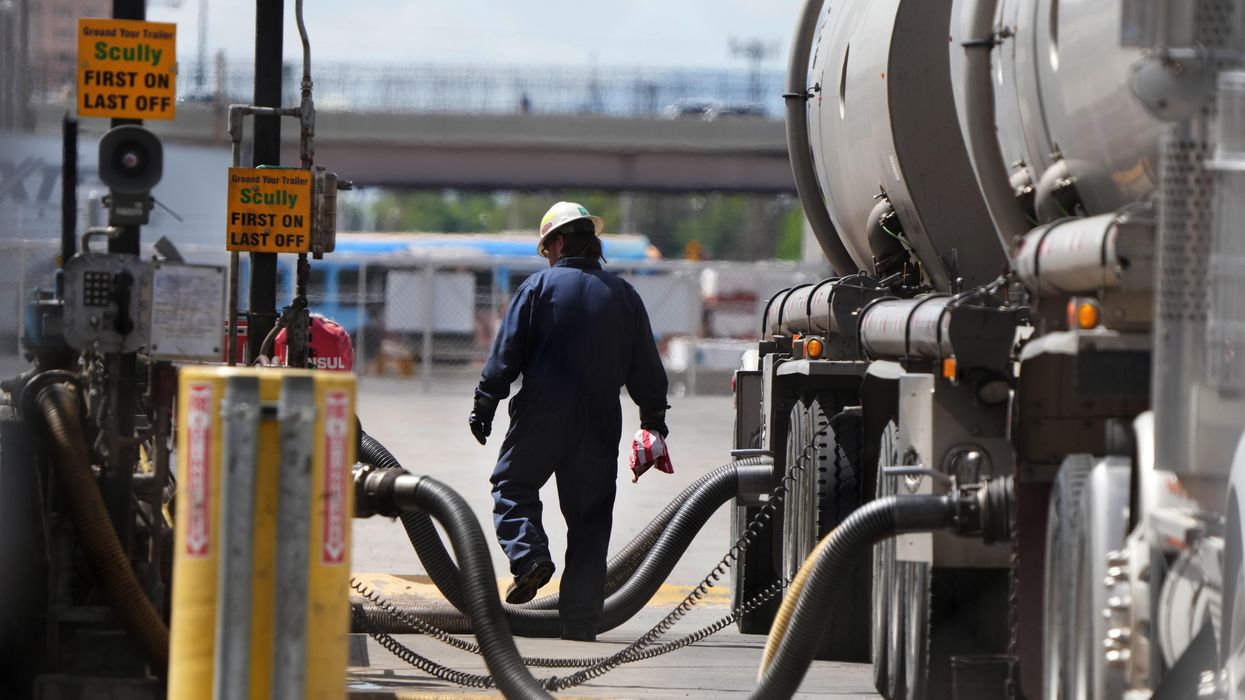The ongoing war in Ukraine has contributed to rising gas and oil prices in the United States, with many Americans paying more than $5 per gallon at the pump. But with energy policy intertwined with national security and international relations – and political gamesmanship – there’s no simple way to bring down prices and fix the problems plaguing supply chains.
Federal leaders – Democrats and Republicans – have been heavily supportive of Ukraine, both financially and morally. But that same sense of unity and cooperation has not extended to the energy and inflation problems plaguing the United States.
Surging prices
Russia invaded Ukraine on Feb. 24, and American and European governments responded with unprecedented sanctions, even though the European Union gets a third of its oil supplies and a quarter of its natural gas from Russia. In March, President Biden announced a ban on Russian oil and gas imports to the United States.
A week after the invasion began, U.S. crude oil and gas prices began to spike, before leveling off and then surging again.
While inflation may also be a factor, “There is really no room for doubt that Russia’s war on Ukraine raised the retail price of a gallon of gasoline by at least a dollar in the U.S. (and much more in Europe),” wrote Alan Reynolds, a senior fellow at the Cato Institute, a libertarian think tank.
The U.S. response
David Ellis, senior vice president of policy, strategy and communications at the Energy Futures Initiative, explained that Biden is now using a three-pronged approach: maintaining unity within NATO, supporting the European Union’s transition away from Russian energy sources, and offering direct support to Ukraine.
“Given the circumstances there is not much more internationally that the Biden administration could have done,” he said, explaining that the issues go far beyond mere gas prices. “ Energy security is national security and therefore international security.”
Concerns regarding Russia’s dominance over the European oil and gas markets have been at the forefront of international debates for years. The 2015 G7 Summit, held a year after Russia’s annexation of Crimea, preemptively addressed the issue through reaffirmations of support for Ukraine’s ongoing efforts to reform its energy systems, reiterating that “energy should not be used as a means of political coercion or as a threat to security.”
According to Ellis, “what’s happening now with the European compact to ban Russian oil and gas is a delayed reaction to something that should have happened in 2014 when Russia took over Crimea.” Instead, members of the European Union continued to source oil and gas from Russia, even extending Russia’s dominance through the construction of the Nord Stream 2 pipeline, which was completed in 2021.
Now, in the wake of Russia’s invasion of Ukraine, Ellis says “There was a successful response but a delayed response to Russia’s aggression, and as a result people are feeling the pain here domestically. … [Although] there’s a lot of aggressive counteraction, it’s had a real impact on the cost of energy.”
Thus, the question remains of how to address consumers’ responses to increased prices on oil and gas products.
Incentivizing change
While politicians debate potential solutions, individuals do have some options to mitigate the effects of higher energy prices, according to Ellis: “The most important thing an American consumer can do is to ask [themselves] ‘What can I do to be more efficient in my consumer choices?’...Ultimately, reducing your own energy inefficiency will save you money in the long term.”
But the cost of switching to an electric vehicle or making other energy efficient choices and changes to one’s life may be prohibitive to those with lower incomes. This is why, Ellis explained, “there needs to be incentivized, unified, and sustainable policies to encourage people to make those choices.”
In the current political climate, where scoring political points outweighs policymaking, implementation of such incentives seems to be a long shot. However, Ellis said, “It’s important to note that there’s been bipartisan support for broadly defined energy innovation ... and there are great intentions about the energy transition.”
And the American public favors a shift away from fossil fuels.
But to get to a new energy policy, the nation will face some growing pains.
“Long range steps will be less contentious and shorter-range policy will continue to be contentious,” Ellis said. “It may be one step forward, one step back if you have administrations or houses of Congress change. Then you have short-term reversals in policy that will harm long-term goals.”
While a majority of Americans are dissatisfied with U.S. energy polices, we have yet to see any unity on the issue in Washington. One thing everyone should agree on, said Ellis, is “permanent understanding that energy security is national security and also economic security. Energy access for developing nations is growth.”



















Trump & Hegseth gave Mark Kelly a huge 2028 gift